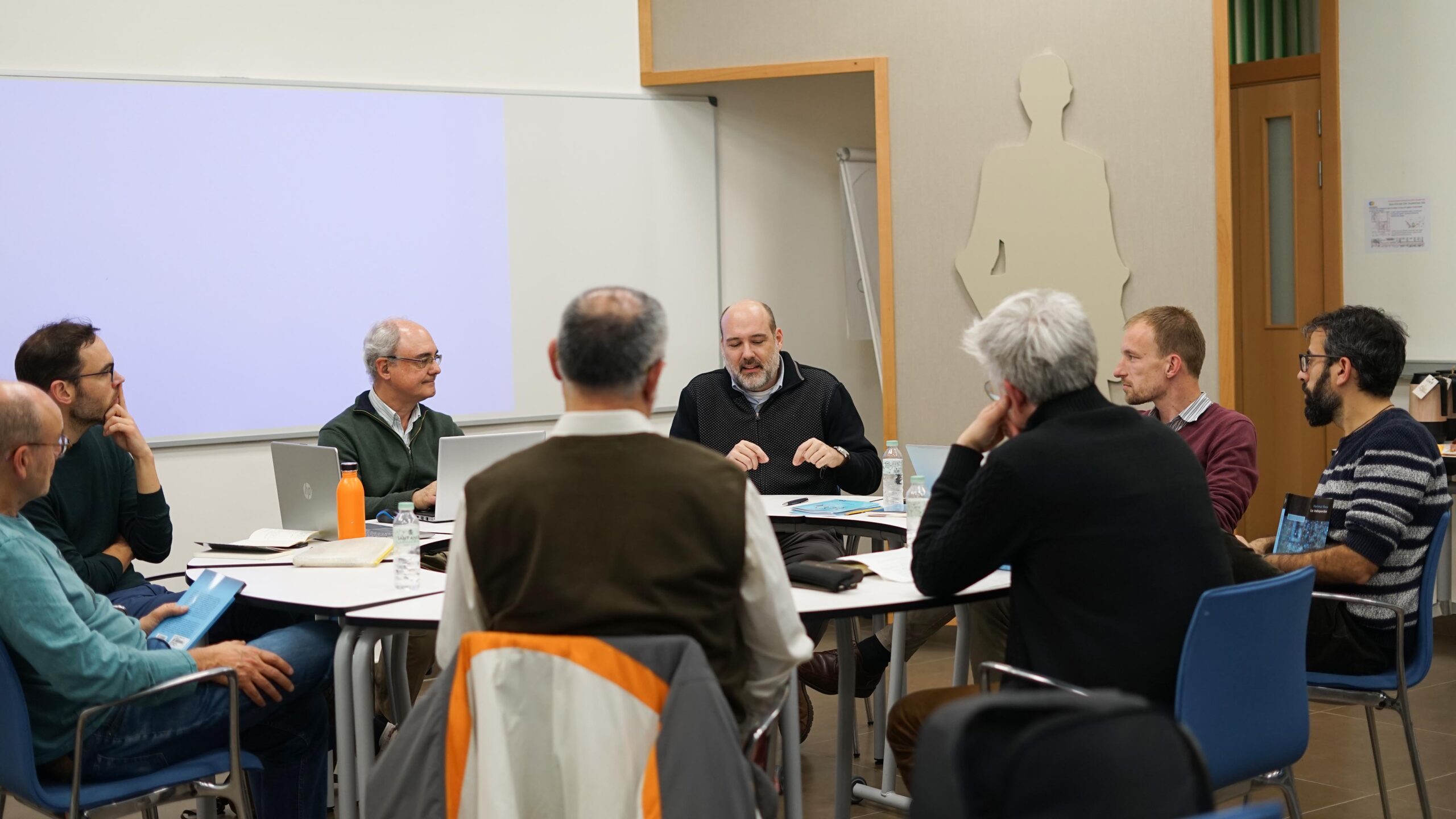“Freeing ourselves from mobiles: from the inability to pay attention to the possibility of resonance” is the title of the online conference given on 29 February by Dr Xavier Casanovas, with the IQS Department of Ethics and Christian Thought.
The talk, viewed by more than 100 people, represents a small milestone in the work of studying and raising awareness about the ethical problems inherent in technology, backed up by more than a decade of experience within the framework of the IQS Department of Ethics and Christian Thought. Professor emeritus Dr Albert Florensa began this line of research with the publication of his doctoral thesis as a trade book (La vida humana en el medio tècnic. El pensament de Jaques Ellul, Claret: Barcelona, 2010). Over the years, this line of research has nurtured the subjects of professional ethics and research ethics that IQS students take as part of their undergraduate studies.
Technoethical reflection has been continuously updated thanks to the regular offering of study seminars that IQS internal and external faculty have attended and contributed to with their specialized knowledge. Debates and training workshops have also been organized for university faculty (on 9 February 2023, an Urgent Discussion about ChatGPT was held at IQS), and academic (Four questions for Technoethics in the Ramon Llull Journal of Applied Ethics) and informative (On Technology) publications have also been produced.
The newest IQS degrees, currently under preparation, include specific subjects on technoethics. Moreover, for the past two years, the presence of this subject has been expanded among students who are already studying our bachelor’s degrees through the mandatory Scientific Thought Seminars at the IQS School of Engineering.
Likewise, contacts have been established with other centres that study technoethics, such as the Hana and Francisco José Ayala Department of Science, Technology, and Religion at the Comillas Pontifical University (UNIJES) or the ICAM in Toulouse. And, of course, there have been numerous talks for the general public, such as the most recent one by Dr Casanovas referred to above.
Resonance and unavailability
Professor Casanovas is a mathematician and holds a PhD in Philosophy from the University of Barcelona, with a thesis on the idea of progress. He is also one of parents who started a movement with a strong social impact in the Poblenou neighbourhood of Barcelona, called “Mobile-free childhood.” This movement calls for a strong agreement between families so adolescents are not given a smartphone for personal use before the age of 16. Its members already number in the tens of thousands throughout Spain, with more than a hundred delegations throughout the country, including fifty in Catalonia. It has even gone so far as to inspire similar movements abroad (Smartphone free childhood in England).
During his talk, Dr Casanovas showed several scientific studies that prove the damage to health and social life that smartphones pose for children who have one of their own, although he also appealed to the pure experience of families’ daily lives: communication difficulties, mental health problems, inability to pay attention, and discomfort.
The professor, however, went further. He talked about the impossibility of resonating with the world and the elimination of unavailability. These concepts are necessary ingredients for a good life, even for an authentically human life, and the current use of this technology is an impediment to their being present in our daily lives, both for adults and children.
Resonance and unavailability have been concepts long discussed in the IQS technoethics seminar, not only giving rise to academic publications (Resonance: The final dissolution of Religions or the Last Stage of Secularization), but also proving that the intellectual work done in the university can be effectively transferred to society directly and effectively.










